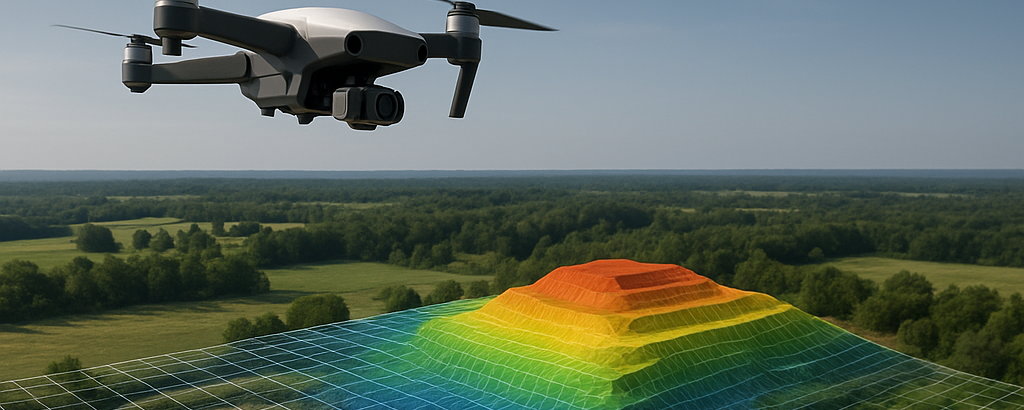In the ever-evolving world of agriculture, efficiency and precision are no longer optional—they are essential. With growing demands for food production, stricter environmental regulations, and the constant challenge of unpredictable weather, farmers are seeking innovative solutions to manage their crops effectively. One technology making a major impact is agricultural drone spraying. Pioneers like Precision Agri Spray are at the forefront of this agricultural revolution, delivering highly accurate, efficient, and environmentally friendly crop spraying services.
The Rise of Drone Crop Dusting
For decades, crop dusting meant large manned aircraft flying over fields, dispersing chemicals over vast areas. While effective on a broad scale, this approach lacked the precision required to minimize waste and environmental impact. Drone crop dusting, on the other hand, uses unmanned aerial vehicles (UAVs) equipped with smart spraying systems to target only the necessary areas with exact amounts of fertilizer, pesticides, or herbicides. This precision leads to better yields, healthier crops, and reduced costs.
From Broad Coverage to Precision Spraying
Unlike traditional aircraft spraying, drones can operate closer to crops and navigate uneven terrain with ease. Their GPS-guided flight paths and intelligent sensors ensure that every drop of spray is placed exactly where it’s needed, avoiding over-application and drift that can harm surrounding ecosystems.
Why Farmers Are Turning to Agricultural Drones
Drone spraying offers a combination of speed, accuracy, and cost-effectiveness that is hard to match. It addresses some of the most pressing challenges in agriculture, including labor shortages, rising input costs, and the need for sustainable practices. By integrating drones into their operations, farmers can complete tasks that once took days in just hours, freeing up valuable time for other farm management duties.
Saving Time During Peak Seasons
During planting and harvest seasons, timing is everything. Delayed spraying can lead to pest infestations, nutrient deficiencies, and ultimately reduced yields. Agricultural drones cover fields quickly, ensuring that crops receive treatments exactly when they are most effective.
Reducing Chemical Usage
One of the greatest advantages of drone spraying is its efficiency. By using real-time imaging and mapping technology, drones can detect problem areas and treat them directly, significantly reducing chemical usage. This not only cuts costs but also supports environmentally responsible farming.
Integrating Drone Technology into Precision Agriculture
Precision agriculture is all about using data to make smarter farming decisions. Drones play a key role in this process by providing detailed aerial views of fields, identifying stress in crops before it’s visible to the naked eye, and guiding targeted spraying operations. Service providers like Precision Agri Spray combine aerial imaging with advanced spraying techniques to help farmers optimize every stage of their crop cycle.
High-Resolution Mapping
Drones can generate high-resolution maps that highlight variations in crop health, soil conditions, and moisture levels. Farmers can use this information to adjust irrigation, fertilization, and pest control strategies, ensuring resources are used efficiently and effectively.
Addressing Concerns About Drone Spraying
Some farmers are hesitant to adopt drone technology due to concerns about cost, training, and compliance with aviation regulations. Fortunately, agricultural drone service providers offer turnkey solutions that handle all aspects of drone operation, from piloting and data analysis to regulatory approvals.
Affordable Access to Advanced Tools
While purchasing agricultural drones outright can be expensive, hiring a professional drone spraying service allows farmers to benefit from the technology without a large upfront investment. This approach ensures they have access to the latest drone models and spraying systems without the burden of maintenance or training.
The Environmental Impact of Drone Crop Dusting
With agriculture under increasing scrutiny for its environmental footprint, drone spraying offers a sustainable alternative to traditional crop dusting. By minimizing chemical drift and targeting applications precisely, drones help protect waterways, wildlife, and neighboring crops. This aligns with growing consumer demand for environmentally conscious farming practices and supports compliance with tightening environmental regulations.
Supporting Sustainable Farming Practices
Every drop of chemical applied through a drone is measured and delivered with purpose. This means fewer emissions, less water contamination, and a healthier ecosystem—benefits that extend far beyond the farm itself.
The Future of Agricultural Drones
Drone technology is advancing at a rapid pace, and its role in agriculture is only expected to expand. Future innovations may include AI-driven disease detection, autonomous multi-drone operations, and integration with automated ground vehicles for fully synchronized farm management.
Beyond Spraying
Today, agricultural drones are not just used for spraying; they are also being deployed for crop monitoring, seed planting, and even livestock management. Their versatility ensures they will remain a valuable tool for farmers of all sizes well into the future.
Taking Flight Toward Smarter Farming
The transition to drone-based spraying is not just about adopting new technology—it’s about embracing a more precise, sustainable, and profitable approach to farming. If you’re ready to explore the benefits of agricultural drones for your own operation, click here to see how experts in precision spraying can help you reach your goals.
For a closer look at how drones are shaping the future of farming, visit their website and find out more about agricultural drone spraying at Precision Agri Spray. The future of agriculture is here—and it’s flying just above the fields.


